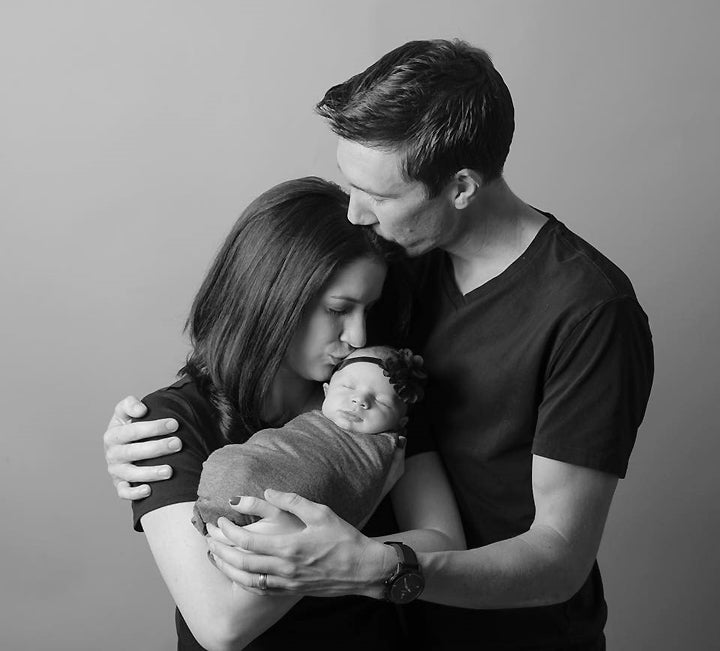
As the clock ticks down on the career of Robby Bell, the now-30-year-old off-road racer has set a new path for the future of himself and his newly founded team Precision Concepts Racing.
In the off-road world, Bell has dominated the West by racking up multiple major championships, including three WORCS titles, three Score Championships [two-time Overall Winner], a four-time Best in the Desert champion, a part of three 24 Hours of Glen Helen championship teams, multiple AMA Big 6 Grand Prix Championships and a two-time winner of the infamous Harvey Mushman 100.
The funny thing is, if you would have told a young Robby Bell that he was going to be an major force in the off-road racing, he most likely would have laughed at you. As a teen, Bell was a focused young rising star in the soccer scene, but then he had a change of heart, and at 16 he dropped the cleats and left the green grass of the soccer pitch to pursue his love of motocross. In his first few years of racing, he qualified for AMA Amateur National Motocross Championship at Loretta Lynn’s, showing promise with top ten results.
It wasn’t until 2004 that Bell turned his attention to the off-road scene where his skill and stamina caught the attention of Honda off-road icons Johnny Campbell and Bruce Ogilive. Bell’s dad, Bob Bell, owner at Precision Concepts [with wife Diane], had already been working with the dynamic duo at American Honda, and it wasn’t long before Robby’s career took off when he was asked to join the Honda team. In his first season with Honda, he placed third in the SCORE World Desert Championship Series and second in the Best in the Desert series, setting the stage for a three-year run of championship titles.
The experienced of working with Ogilvie and Campbell made an impact on Bell that would last long after he and the team went their separate ways, and the proof came when the Bell family formed their own race team to campaign in western off-road races as well as in Baja. For the next seven years, Bell enjoyed tremendous success with the team that he and his family built, including an overall win at the Baja 1000 and multiple WORCS titles.
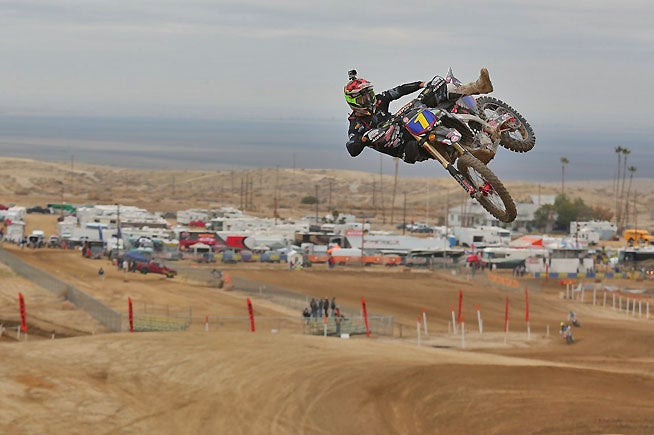
These days, Bell still enjoys success as a racer, but times have changed since he and wife Katie welcomed their first child, McKenna a baby girl. Happily accepting his new role as a father, Bell has decided to make another career move: In 2017 he intends to close out his full-time racing career before stepping away from chasing championships to race select events in 2018.
But don’t think for one second that Bell plans to just walk away from the sport; that’s the last thing on his mind. Instead, he will step into the role of owner/manager of the Bell family’s Precision Concepts Racing team and help to develop the next generation of stars in the off-road scene.
Nic Garvin: You’re a three-time WORCS Champion now, and personally I think you’ve killed it, but you’ve overcome some major adversity to win these championships. They haven’t come easily.
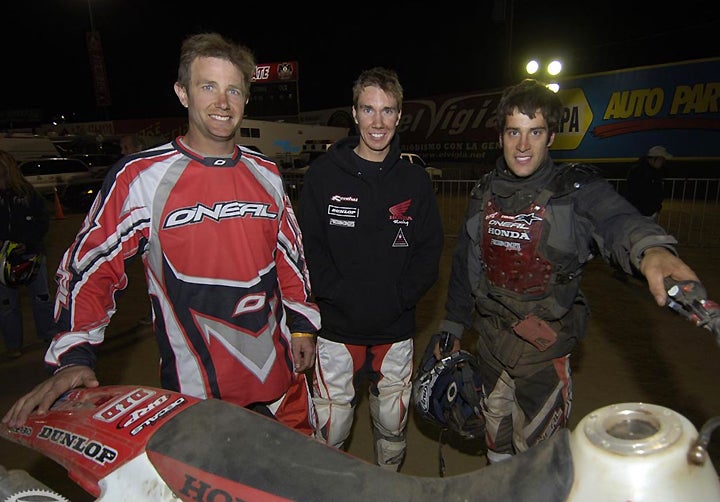
Robby Bell: I appreciate you saying that for sure. I’m not trying to be humble about it, but when I started to hit my peak and figure out my own body it all coincided with a lot of people moving out of the sport. These were times when Kurt Caselli moved out of WORCS, and Mike Brown, Taylor Robert, and Bobby Garrison retired. It definitely is nice, and I do take a lot of pride in each championship, of course. It’s always tough to win a championship, but I’ve always been grounded in the fact that it hasn’t been against the guys in that core group. I think that is why I’m excited to hear that Taylor is coming back next year because he is the one remaining guy that was in that core group. He could go out and beat anyone on any given day. I haven’t beaten Taylor heads up, and it’s not like he’s a target for me, but in this next year it will be cool to push myself and really see where I am. I would love to think that I have improved since 2008 and if we were back there when we had Bondo, Kurt and everyone out on the line, I would like to see if I were a championship guy. It’s a question I have always had. Regardless, it would be nice to go out with a bang. I’ve had a great career and have loved every second of it. I’ve met some amazing people and awesome companies. Running our race team now is something I enjoy, and I’m excited for the future with that.
Nic Garvin: So you’re saying that next year is your last year as a full-time racer?
Robby Bell: Next year is going to my last year chasing a championship. I’m always going to race. I mean, I’ve been riding a dirt bike since I was 4. I’m not just going to retire and go, “Okay, I’m done,” go out and take up fishing or golf or something like that. [laughs] Once you have it in your blood, you can’t replace that adrenaline rush. I will still race in the Pro class, but I will race the ones that I enjoy the most–you know, like a Havasu.
Nic Garvin: You enjoy Havasu?
Robby Bell: I used to hate Havasu! [But] you have to have soft spot for your first WORCS Podium. I got third there in 2007…Almost a decade ago… [laughs]
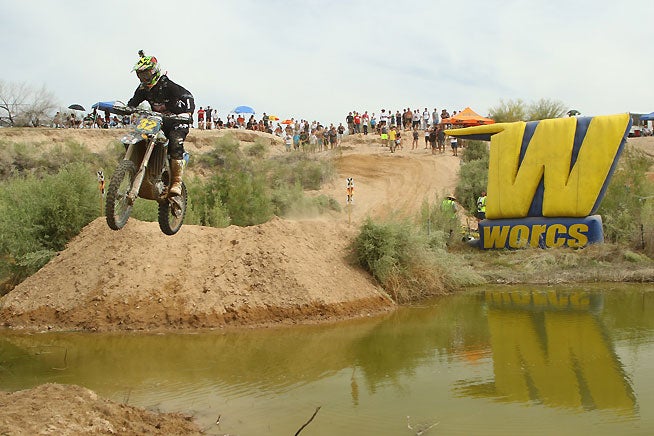
Nic Garvin: Okay. I guess we will give that to you. You’ve seemed to always do well there, until you threw out the anchor while leading this year’s race…
RB: Havasu is an interesting one. When you’re on, Havasu comes to you easy. If you’re struggling, then good luck. I want to say that I was still dealing with a virus; it would be embarrassing if I could only go hard for an hour. I felt so good up to that point, and then to just throw out the boat anchor and just ride around and not be able to see straight afterwards, literally come straight from the track to lying on the floor of the rig and not being able to move for the fear of cramping up. That’s the worst I’ve ever endured ever since figuring out my body, back in 2006, ‘07, ’08. I remember dreading WORCS races in Washington because I sucked in the trees and was always using more muscles and fighting the bike more. I’d be a lap down, or two laps down, trying to maintain—and I’m a factory Honda guy at this time. It’s crazy to think about how far I’ve come.
Nic Garvin: Well, many people don’t realize it, but you started late in the game. You were into soccer at first. A lot of people don’t understand the skill and hard work you had to put in to become a Pro so quickly, when you had to go to races and you had your Trevor Stewarts and Jarret Meglas, that generation that grew up racing weekend to weekend and was building skill and always improving. You dropped everything you were doing and came out of nowhere.
Robby Bell: Obviously, I rode ever since I was 4. I would just follow my dad around the desert and occasionally would do the mini events. But my first real race wasn’t until I was 16. In a way it mirrors my off-road career, especially in Baja. Basically I turned 16 and said I’m done with soccer and high school, which I don’t recommend. I never enjoyed school. I’m more of a free spirit I guess. What I’m trying to say is, I raced my first race, and by the end of that year I had already qualified for Loretta Lynn’s in the C class. By the following year, I was in the B class, getting top 10s. I never really got support. It’s hard enough in off-road, but it’s even tougher in motocross unless you’re a top-two rider.
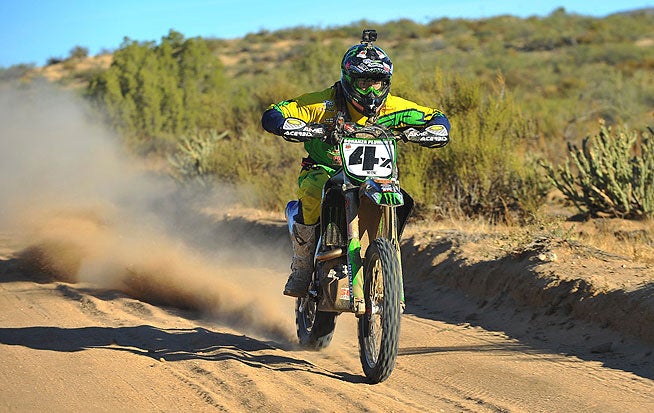
Back in 2004 I believe, I showed up to race my very first GP race. Back then we were still racing at LACR, and the big race was the Pro team race. Anyways, I showed up in the B class and passed up to second overall. At the time my dad had a relationship with Johnny Campbell, and he told my dad “I didn’t know Robby could ride off-road.” Not that it was an off-road race, but still it showed I had stamina. Well, Bruce and Johnny took a chance on me, and now I can say that I owe a great amount of my achievements to the start they gave me.
Nic Garvin: So take us through your first year in Baja. You had to transition from being a full-time moto rat to now Baja?
Robby Bell: Put it this way, I was 20 years old, 6’0 tall, and 145 lbs., racing this 350-lb. behemoth XR 650. Don’t know how to lift weights or anything, shouldn’t have even been close to a bike like this, and my first race on it was at Parker 250 with Kendall Norman, another awesome free-spirited guy. Kendall wadded up so hard in the first 20 miles of that race while leading, mind you. He was pulling away from all the top guys at the time, but he crashed so hard he pulled the clevis out of the shock. The seat was at least a foot higher than it should have been. So I had to go out and solo this race, 220 miles on a 350-lb. tank. I did decent. I rode into a pace, and that last lap came around and I went into a corner, hit an edge and unloaded myself. It gets better though, because my first experience in Baja, I was going down the power line whoops right after Borrego. To this day I have no idea how I did this, but the front disc must have hit a rock while I was in a whoop. It bent the disk just perfectly so when it came around to the caliper it sent me head over heels right into the cholla cactus. The good and the bad, the cactus broke my fall… but I was covered head to toe in cactus. Six months later I was still pulling cactus. Welcome to Baja!
Nic Garvin: You enjoyed success with Honda and JCR, but eventually all good things come to an end, and you started a new program with your dad and chose to race Kawasaki. Give us some insight on the program you guys were running?
Robby Bell: We went back into 2009, and to be honest in 2014 when I went back down to race with Brabec and Eddy, 2009 was the reason I went back. I wanted to conquer the demon, basically. In 2009, [former World Speedway Champion] Bruce Penhall came to us and said he wanted to do the Baja 1000 on a Kawasaki and get back the 1x. We had Destry Abbott, Ryan and Connor Penhall, Steve Hengeveld and myself. On paper we had a great shot. I think we surprised a lot of people, to be honest; we had about 10-12 minutes on the Honda guys. I had the section from below Puerticitous and then rode up Old Puertecitos Road, up through San Felipe, turn left up Borrego, up those whoops, cross over up San Matias and up the wash next to the road.
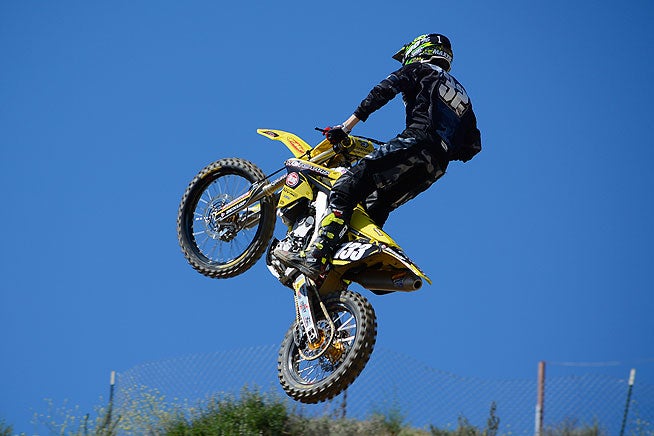
I can’t stress this enough: I was literally a half a mile away from being on the highway, and I honestly let myself soak in the fact that I was done, and a little rock caught me off guard and sent me into a swap. And I bent the bike. I gave Destry a mangled bike, and Steve as well. We kept the physical lead but it allowed the Honda guys to close in on us. That for me, was the drive to keep going down there for years. It was so bad that at night I would think about that crash. If I would have given them a great bike, we would have won.
But that was my drive to keep going back down. Then when I got to be a part of the 2014 winning team, for me, I conquered those demons and put it to rest. I enjoyed so much success in Baja, and to win the 1000 and do it on a Kawasaki was just a perfect way to end my career down there.
Nic Garvin: This year I’ve gotten to experience Baja and race at speed down there, but honestly the course isn’t all that great. It’s mentally and physically the hardest race I’ve ever endured. When you try to explain Baja, it’s super hard.
Robby Bell: Baja is like your crazy ex-girlfriend, that just ruins you emotionally and even physically, but then you keep getting drawn back to her. “Why do I keep going back?” Don’t get me wrong; I love the culture and all the people—that’s what makes Baja. Pre-running is so awesome, and getting to enjoy it is what Baja is about. You can use all the metaphors and adjectives you want, but at the end of the day, the best you can say is it’s Baja.
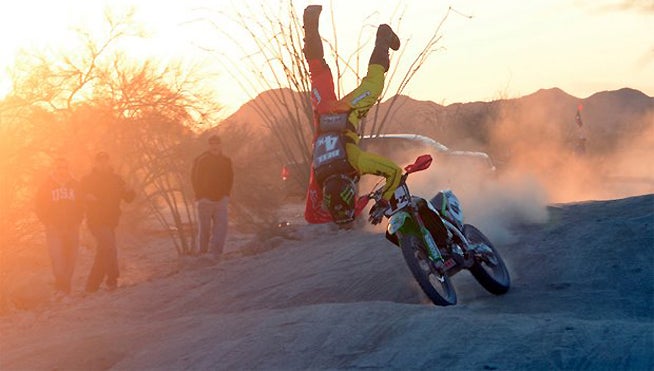
Nic Garvin: Switching gears here, tell us about your role as a team owner/manager of the Precision Concepts team.
Robby Bell: It’s funny. On a few proposals this year I put down owner/manager and thought to myself, “Whoah, that’s pretty cool!” I’m learning a ton. It’s the next part of my career in this sport, and I think when you’re racing you don’t realize how much is taken care of for you. All you have to worry about is training and showing, at least at the factory level that’s what it trickles down to. But as you realize, the less support you get the more you have to endure on your own. Learning how to fund the team and getting sponsors that are willing the help with the team is huge. It’s amazing how quickly the expenses go out! For instance, the National Hare and Hound, it’s a great series, but it’s also one of the most expensive series to chase. It gives me more appreciation to the teams that do it on a larger scale, and the guys that just do it on their own.
Those are the guys that just love to race, like your Jon Johnsons. He will drive until 3 a.m. and get up at 5 a.m., to go practice the bomb run for the 8 a.m. start. The passion and love for the sport…those guys are the ones to respect the most. That’s pure love for the sport. Another thing is getting to help other riders that are a part of the team by helping them achieve their goals and giving them a platform to succeed.
Nic Garvin: Give us a rundown for next year with your riders and what the team will be going for in terms of championships.
Robby Bell: You will see Justin Morgan at National Hare and Hounds and Hard Enduro events. Those suit his racing style, and I believe he will do very well. Justin Seeds will be running WORCS and Big 6, and I will follow those events as well.
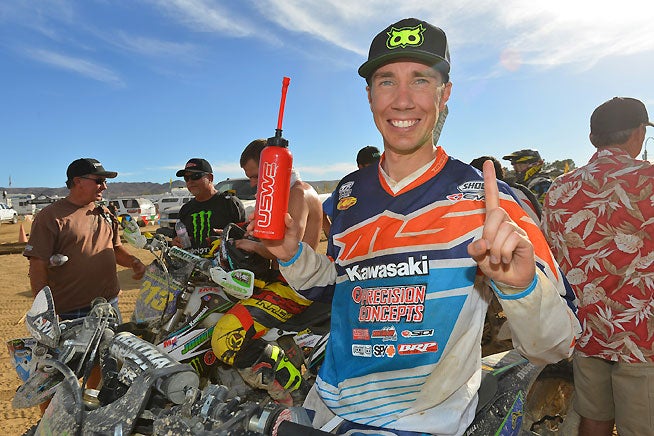
Nic Garvin: Thanks for the time, Robby Bell. It’s awesome to watch you and your team grow, and we look forward to watching you next year. You guys are a true team. When you come to the races, you’re set up professionally, all matching, and the best part is that you’re willing to help the average guy. You have a big team, and you still manage to be there to support other riders. Whether it be a WORCS, Big 6, NHHA or NHS, you still get to those races and look professional.
Robby Bell: I appreciate that. As you well know, perception is reality. It’s not a narcissist image. We aren’t going for “Well look how cool we are.” We do this to help support the people around us and support the racers at races. Rocky Mountain, Maxxis, FMF, the sponsors that have hopped on board to allow us to have this, is what helps. Rocky Mountain has helped create such a great image. When we come to the races you can spot us. And I want to say first and foremost that we are there as a race team, but we are there for the racers. If it were our sponsored riders, our support riders, or even if you have other suspension or bike work done by other people, we are there for you guys.
 Your Privacy Choices
Your Privacy Choices